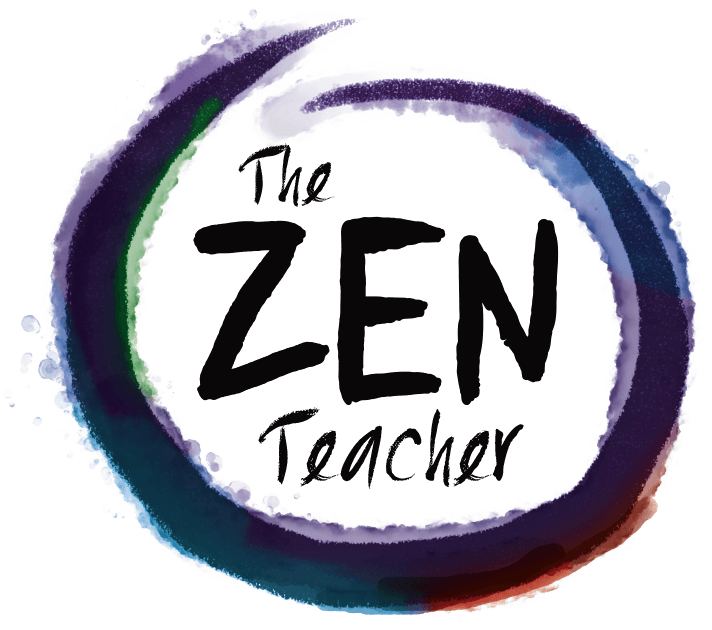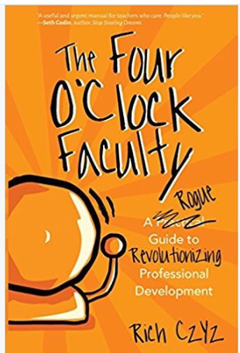How do you stay “centered” in the midst of the storm?
As a new Principal, I have found that storms can arise quickly and almost on a daily basis. Whether it is a student or staff member who gets hurt or injured, or a parent calling in with a serious concern about their child, problems can come up that need immediate attention. What I have learned is that I must be the calming presence in any situation where stress levels are raised. My goal in dealing with any of these storms is to remain level-headed, to not become too high or too low, and to not become emotionally charged. I will often ask myself, “What can I do to diffuse this situation?” or “What can I do to make this situation better?” When I can answer either of these questions, I can usually help others in a time of difficulty or need.
What role does non-judgment play in your experience?
When approaching any interaction with others, my goal is empathy. I want to understand where the other person is coming from–whether a student, teacher, or parent. I will often ask, “What is really at stake right now?” When considering this question, we must understand where someone is coming from, and decide how to move forward with this knowledge. Take for example, an interaction with a difficult student. A student who challenges a teacher may have had a bad experience the previous night at home, or gotten into a fight with their best friend, or simply not gotten enough sleep. The teacher must decide why the child is struggling and decide how to move forward. Many times when this happens, a teacher will challenge the student publicly, creating a battle in which someone must win and someone must lose. In many cases, the battle ends with two losers. Rather than considering the student’s needs, the teacher considers his or her own needs first. It might be easier to ask the question.
One strategy to consider is to try to make people feel bigger. Have you ever felt better in a situation where you made someone else feel small? It has probably never happened. Even if you felt bigger for a moment, you probably regretted your actions at a later point in time. Don’t make this mistake in your interactions with colleagues, parents, or students. The student who is causing all kinds of trouble this morning may be coming to school to experience the best part of his or her day. Take every opportunity to lift up that child rather than deflate them. Provide a chance for that student to show off to the class, or just give a reassuring pat on the back to say “I know this hasn’t been easy for you.”
What role does gratitude play in your experience?
We often don’t hear many messages of gratitude in our world. While it can be difficult to take time out of our busy schedules to say thank you to people, or to voice our gratitude or appreciation, it still remains crucial to do so. A simple thank you can go a long way in making someone feel better. It is important to show gratitude to staff members who go above and beyond. A simple note of gratitude or appreciation is a great way to recognize someone and usually can have a great impact. In our school, we recognize Bucket Fillers, based on the book. Students and staff members who are kind, caring, and do both simple and remarkable things for others receive a slip of paper that recognizes what they did. This small token of appreciation makes a difference.
A few months ago, I helped walk students with an umbrella from their cars to our building during a particularly bad rainstorm. After I went into the building, my shoes and pants were soaked for the rest of the day. I focused too much on how my day was ruined by the wet clothes and being uncomfortable, rather than focusing on the students who made it into the building safe and dry. It wasn’t until a few days later when I received several Bucket Filler slips from students and staff members thanking me, that I realized that the act didn’t go unnoticed. The simple recognition made me feel better. Knowing how it made me feel, I now try to fill out Bucket Filler slips for acts both big and small, so that no good deed goes unrecognized. It is important to do so. Try to say thank you to someone each day–whether it is a student, parent, colleague, family member, or complete stranger.
You never know the impact that the simple gesture will have. TZT
Rich Czyz is the co-founder of the Four O’Clock Faculty blog, for educators looking to improve instruction and learning for themselves and their students. Rich is passionate about engaging all stakeholders in meaningful and relevant learning. He is currently Principal of the Thomas Richards School in Waterford, NJ, and formerly a Fifth Grade and Basic Skills Teacher, as well as Elementary Supervisor and Director of Curriculum & Instruction. Rich can be found on Twitter (@RACzyz) or reached via email at richczyz@gmail.com.
Rich is also the author of The Four O’Clock Faculty: The Rogue Guide to Revolutionizing Professional Development.


